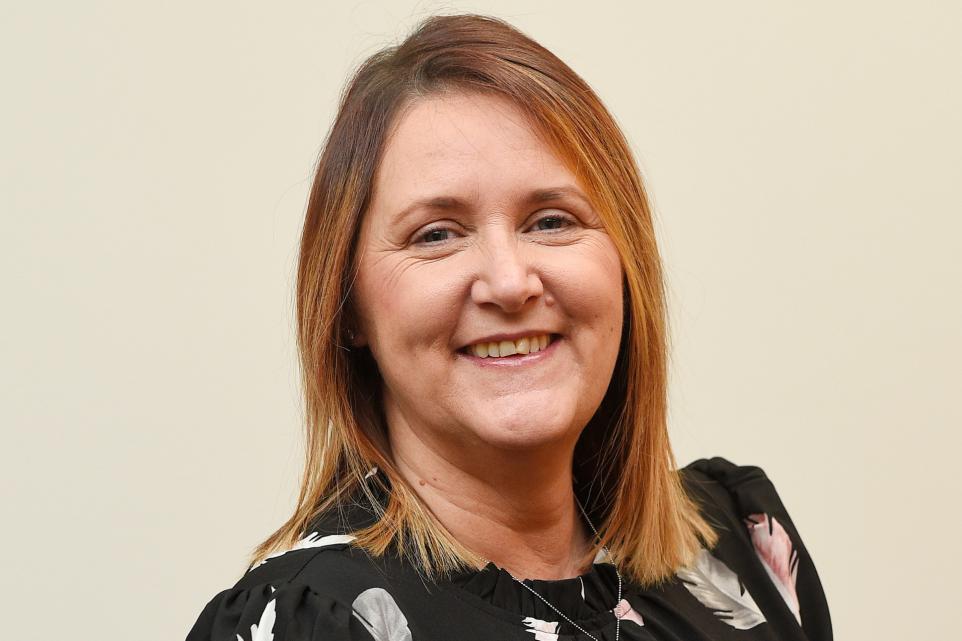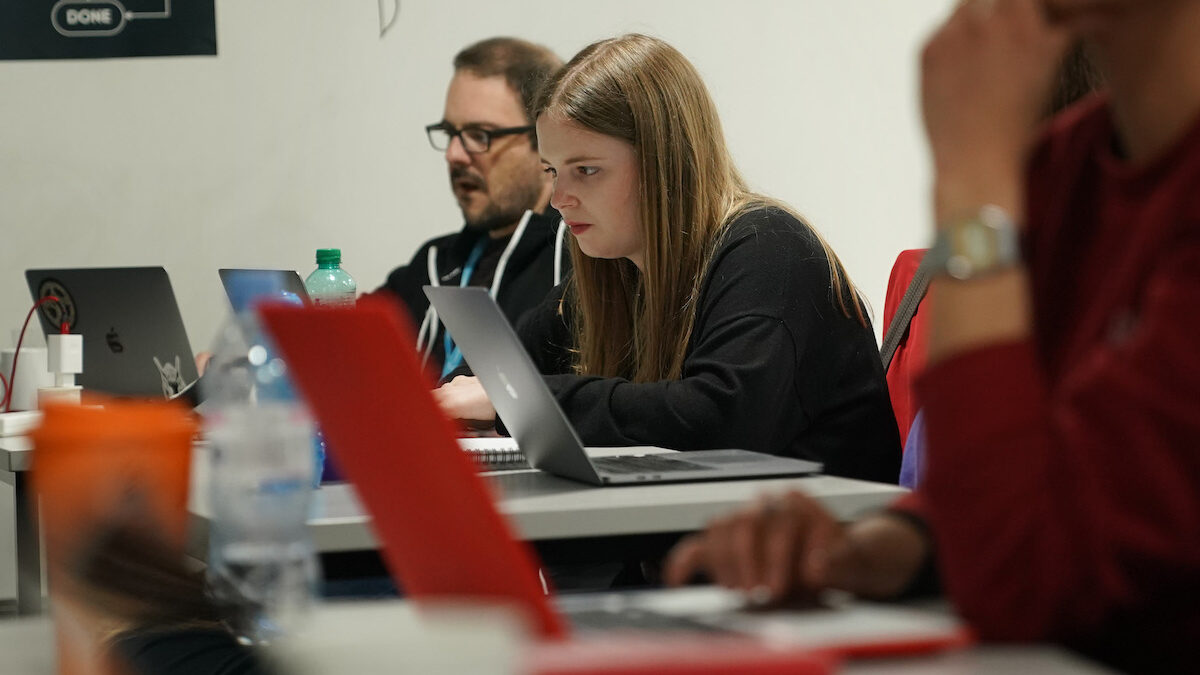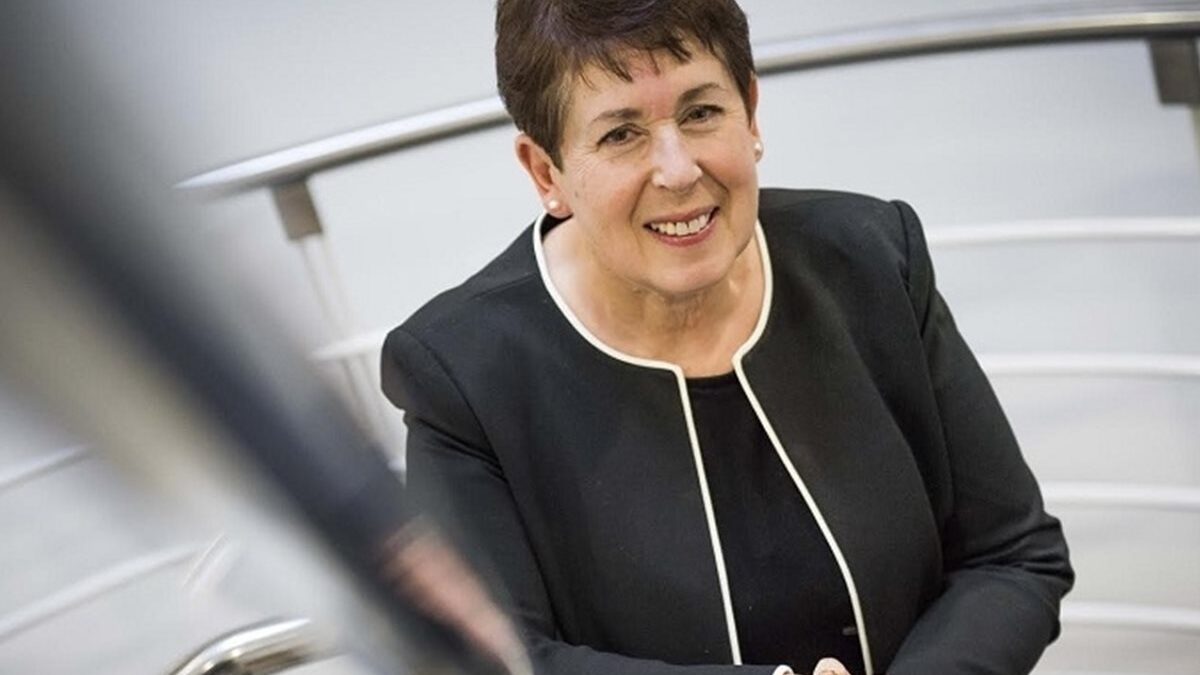Leading tech education charity calls for Scottish tech sector to help safeguard Scotland’s digital future
Digital Xtra, a technology education charity, has seen demand skyrocket for after school coding clubs and wider STEM activities – yet it says unless industry make up a current government shortfall in funding, thousands of young people won’t have the opportunity to learn vital future skills. This is of particular concern considering recent figures which show a further decrease in the number of computing teachers across Scotland.
Digital Xtra’s Kraig Brown: “There has never been a greater collective realisation of the importance of digital skills for Scotland’s young people – but with government funding now unavailable due to budgetary constraints, we’re calling on the Scottish tech sector to invest in skills and work together to future proof local tech talent.”
 Linlithgow, 23 April 2024 – Leading Scottish tech charity, Digital Xtra, has called on Scotland’s burgeoning tech sector to support the provision of extracurricular digital skills learning in schools and communities.
Linlithgow, 23 April 2024 – Leading Scottish tech charity, Digital Xtra, has called on Scotland’s burgeoning tech sector to support the provision of extracurricular digital skills learning in schools and communities.
Over the past eight years the charity has funded 163 digital skills learning initiatives, to the tune of almost £1m, reaching nearly 55,000 young people across Scotland, from the Borders to the Outer Hebrides. However, funding from the Scottish Government for the next cohort of activities is unavailable and the charity fears the growth of digital skills, which is crucial to building Scotland’s future economy, will experience further setback.
Kraig Brown added: “Every role in our children’s future will require a degree of digital confidence and skill, and one of the biggest growth constraints for Scotland’s tech sector is a narrow talent pipeline. Excitingly, in an industry that struggles with gender balance, over half of the young people we support are girls –making for a potentially more representative future tech industry. However, without funding for these projects, thousands of Scotland’s young people won’t be able to take their first step to a future career in technology
 Despite a shortage in computer science teachers, there are passionate educators across the country who run coding, robotics, and games development clubs, funded by Digital Xtra, because they understand how important these skills are to our young people’s future. But we’re facing a situation where we can fund less than half the number of projects we could just a few years ago. With government currently unable to provide us with the funding we received previously, we’re calling on the technology sector to step up to keep the momentum going.”
Despite a shortage in computer science teachers, there are passionate educators across the country who run coding, robotics, and games development clubs, funded by Digital Xtra, because they understand how important these skills are to our young people’s future. But we’re facing a situation where we can fund less than half the number of projects we could just a few years ago. With government currently unable to provide us with the funding we received previously, we’re calling on the technology sector to step up to keep the momentum going.”
Some of Scotland’s leading tech names have already committed their support, including travel search site Skyscanner. The Edinburgh born firm has donated over £55,000, the single largest corporate contribution received by Digital Xtra to date. Other corporate partners include Baillie Gifford and Cirrus Logic as well as Accenture, Be Positive, DIGIT, Incremental Group, and FullProxy.
Andrew Phillips, Skyscanner’s Chief Technology Officer, who grew up in Aberdeen, said: “Without lots of digital skills provision at my own school, I taught myself computer programming, which kick started my journey into my role today. Scotland’s tech sector has the potential to be a leader in Europe, but from my own experience I recognise the systematic challenges we face. We have potential for our tech sector to grow even further – but without supporting young people to learn digital skills from an early age, we simply won’t have enough home-grown talent to do so.”
Digital Xtra appointed tech sector luminary Polly Purvis OBE, chair of Converge Challenge and formerly CEO of ScotlandIS, as chair last year.
 Polly Purvis said: “The appetite for digital skills provision is huge – indeed, Digital Xtra has eight times the number of funding requests we’re currently able to support this year. The charity’s outcomes have been nothing short of transformational for so many young people and so many communities. At a time when the need for digital skills is only going to increase, and the Scottish tech sector and wider economy will be the main beneficiaries of a digitally skilled workforce, along with the young people themselves, we need even more investment from the private sector companies to generate the incredible output from organisations like Digital Xtra. Our ask of industry is to work together through the charity and provide additional funding this year so we can make the step change needed to fund many more of these brilliant projects.”
Polly Purvis said: “The appetite for digital skills provision is huge – indeed, Digital Xtra has eight times the number of funding requests we’re currently able to support this year. The charity’s outcomes have been nothing short of transformational for so many young people and so many communities. At a time when the need for digital skills is only going to increase, and the Scottish tech sector and wider economy will be the main beneficiaries of a digitally skilled workforce, along with the young people themselves, we need even more investment from the private sector companies to generate the incredible output from organisations like Digital Xtra. Our ask of industry is to work together through the charity and provide additional funding this year so we can make the step change needed to fund many more of these brilliant projects.”
Last year’s grants from Digital Xtra included the ‘NextGen Coding Club’ by the Association for Black and Minority Ethnic Engineers in Aberdeen, ‘Roving Robots’ by Comhairle nan Eilean Siar in the Western Isles, and an all-girls’ ‘DigiSTEM Club’ in East Renfrewshire.




 This allowed Corstorphine Primary to buy new Sphero BOLT coding robots and equipment which made the learning environment of the club come to life. Together with iPads for pupils provided by CGI through City of Edinburgh Council’s Edinburgh Learns for Life, the club members’ love of all things coding has been transformed, with huge levels of interest and engagement.
This allowed Corstorphine Primary to buy new Sphero BOLT coding robots and equipment which made the learning environment of the club come to life. Together with iPads for pupils provided by CGI through City of Edinburgh Council’s Edinburgh Learns for Life, the club members’ love of all things coding has been transformed, with huge levels of interest and engagement. Mr Stannett said the support of Digital Xtra Fund has been transformative, as has Edinburgh Learns for Life’s iPads. The pupils can use the iPads not only in their everyday work, but also for coding the Sphero BOLTs. They were also given insights into future potential careers from those already working in STEM among Digital Xtra Fund’s backers. These included senior managers from CGI, a global IT firm with local roots that supports communities across Scotland.
Mr Stannett said the support of Digital Xtra Fund has been transformative, as has Edinburgh Learns for Life’s iPads. The pupils can use the iPads not only in their everyday work, but also for coding the Sphero BOLTs. They were also given insights into future potential careers from those already working in STEM among Digital Xtra Fund’s backers. These included senior managers from CGI, a global IT firm with local roots that supports communities across Scotland. With a club split 50/50 between boys and girls, Mr Stannett noticed different ways in which they engaged with the BOLTs and iPads. He said: “The group was mixed in terms of interests, as some preferred to explore the story-telling capabilities of the robots, while others were more interested in the ‘nuts and bolts’ of how each coding programme worked.
With a club split 50/50 between boys and girls, Mr Stannett noticed different ways in which they engaged with the BOLTs and iPads. He said: “The group was mixed in terms of interests, as some preferred to explore the story-telling capabilities of the robots, while others were more interested in the ‘nuts and bolts’ of how each coding programme worked.





